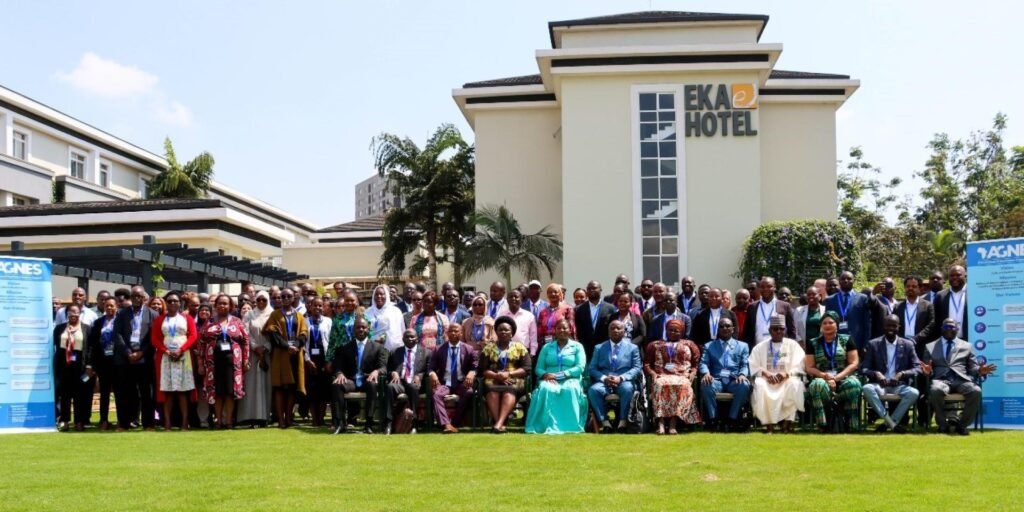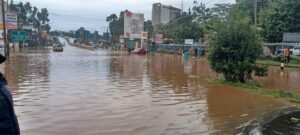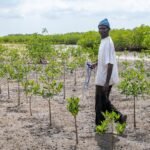By Zablon Oyugi, November 6, 2024, With the 29th United Nations Climate Change Conference (COP29) approaching in November 2024 in Baku, Azerbaijan, African nations are actively aligning their priorities with global climate goals.
This follows one of the key expected deliverables of COP29 (also known as the ‘Finance COP’) which is an increase in global climate financing and an agreement on a new collective target.
Recently, the African Group of Negotiators Experts Support (AGNES), founded in 2015 to provide scientific expertise for a unified African stance in climate negotiations, held a meeting in Nairobi from September 23rd to 27th. The gathering brought together negotiators, policymakers, and experts to address critical issues and develop cohesive strategies.
Among the key focused areas of the pre-COP29 strategy meeting included:
— Building capacity to implement solutions that strengthen community resilience to climate shocks through innovative approaches.
— Updating LDC negotiators on the latest evidence of Transboundary Climate and Adaptation Risks (TCARs) for global policy integration.
— Highlighting the need to map Global Goal on Adaptation (GGA) indicators to address adaptation priorities, while exploring negotiation options for the New Collective Quantified Goal (NCQG) on climate finance.
— Supporting parliamentarians to create an engagement framework and roadmap, recognizing their role in enacting climate laws, promoting renewable energy, and funding mitigation and adaptation projects.
— Establishing a unified African position for COP29.
“To measure adaptation progress effectively, we need strong monitoring, evaluation, and learning systems aligned with clear impact pathways. This requires assessing human and financial capacity, fostering collaboration, and building partnerships for smooth data flow,” said Dr. Lucy Njuguna, Post-doctoral Fellow, the Alliance and AICCRA during the conference.
According to the stakeholders, strengthening the capacity of African negotiators to prioritize adaptation strategies will enable African countries to cope with the inevitable impacts of climate change, which is vital to get the breakthroughs that could secure more finance for validated climate adaptation solutions so that they can be scaled to reach millions of Africa’s smallholder farmers.
Conference on Climate Change and Development in Africa
Earlier on the African Development Bank, the African Union Commission (AUC), the United Nations Economic Commission for Africa (ECA), and the Pan African Climate Justice Alliance (PACJA) also brought together key stakeholders in Abidjan to align Africa’s climate action priorities ahead of the COP29 conference.
In the meeting, the Twelfth Conference on Climate Change and Development in Africa in August 2024, the leaders stressed the disproportionate impact of climate change on Africa despite its minimal contribution to global emissions urging for action.
“Without urgent adaptation and mitigation efforts, climate change will lead to an equivalent of 5 percent annual loss in GDP on the continent by 2040, with the poor, women, and the most vulnerable and marginalised populations, predominantly in Africa, bearing the brunt of the impacts,” said Ambassador Josefa Sacko, AUC Commissioner for Agriculture, Rural Development, Blue Economy, and Sustainable Environment.
In one accord, they urged African leaders and participants to join forces ahead of COP29, with an emphasis on mobilising climate finance at scale for the continent.
The other major focus areas in the COP29 are defining details for carbon markets, and reviewing progress in refining indicators for the Global Goal on Adaptation, among others.
Africa climate financing 2023 report
According to a joint climate financing report by Multilateral development banks (MDBs) and the African Development Bank, their collective financing for climate action hit a record high of $125 billion in 2023, more than doubling levels in 2019.
Of the $125 billion, MDBs allocated $74.7 billion to low- and middle-income economies. Sixty-seven percent of this—or $50 billion—went to finance climate mitigation, which refers to actions that reduce, avoid, limit or sequester greenhouse gas emissions, while $24.7 billion, or 33 percent, was directed to climate adaptation.
Adaptation finance involves activities and measures aiming at reducing the risks or vulnerabilities posed by climate change, and at increasing climate resilience.
Of the $74.7 billion that went to low- and middle-income countries, $28.5 billion, or roughly 38 percent, was mobilised from the private sector.
In this, the report says that given the need and urgency of climate adaptation finance, particularly in climate vulnerable low-income countries, these numbers demonstrate positive steps, but remain well below what is required.
The African Development Bank projects that Africa’s adaptation financing gap from international sources ranges from $166 billion to $260 billion in 2020 – 2030.







